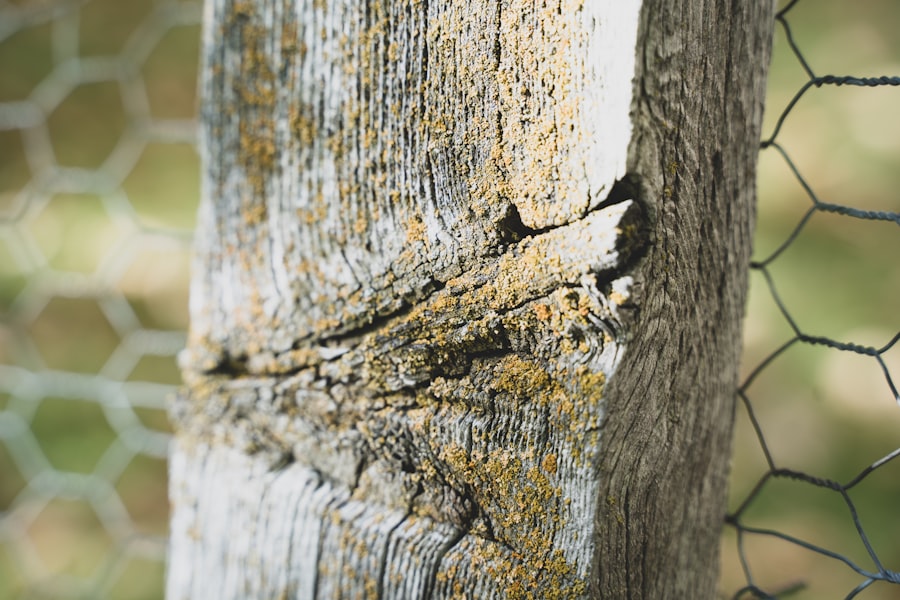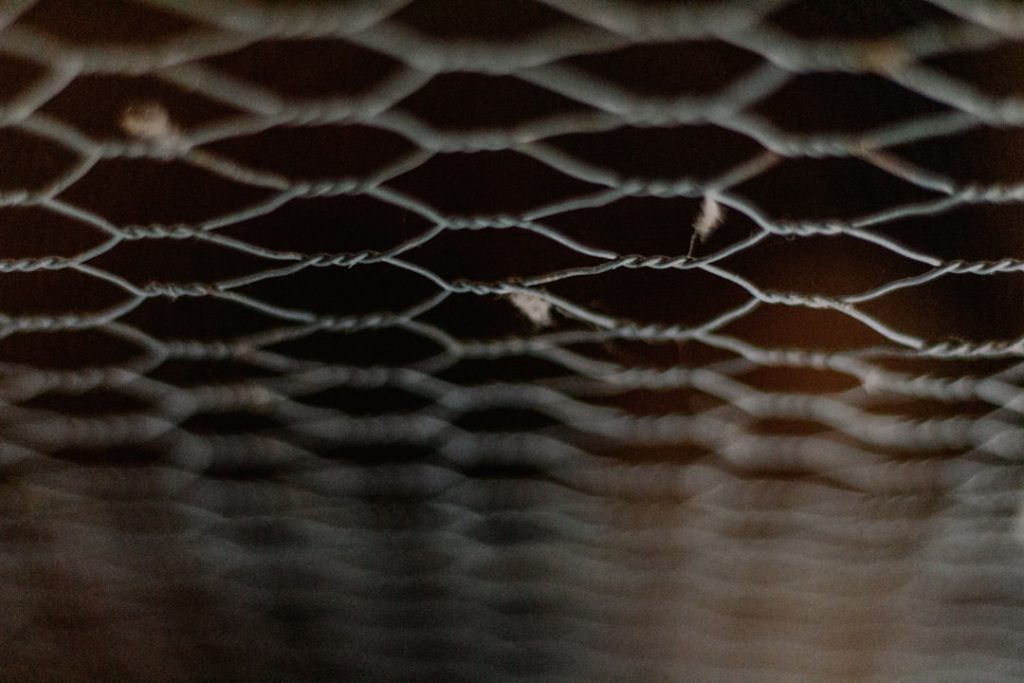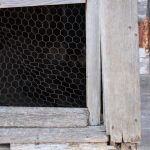Chickens are naturally inquisitive and active birds with a strong instinct to scratch and forage for food. This behavior involves pecking and scratching the ground to find insects, seeds, and other edible items. Such activities are crucial for their physical and mental health.
However, this natural behavior can become problematic when chickens scratch and forage in undesired areas like flower beds, vegetable gardens, or patios. Understanding these innate behaviors is essential for developing effective strategies to prevent damage to gardens and outdoor spaces. Chickens are social animals that thrive in flocks.
They establish a hierarchical pecking order within their group, which can sometimes lead to aggressive behavior, particularly in overcrowded conditions or when resources are limited. Comprehending these social dynamics is important for addressing potential behavioral issues, such as aggression towards other animals or humans. By understanding chicken behavior, owners can better anticipate their needs and provide appropriate outlets for their natural instincts, thereby reducing the likelihood of garden or property damage.
Table of Contents
- 1 Choosing the right flower pots and plants
- 2 Creating physical barriers
- 3 Using repellents or deterrents
- 4 Providing alternative areas for scratching and foraging
- 5 Consistent monitoring and training
- 6 Seeking professional advice if necessary
- 7 FAQs
- 7.1 What are some effective ways to keep chickens out of flower pots?
- 7.2 Why is it important to keep chickens out of flower pots?
- 7.3 Are there any plants that can repel chickens from flower pots?
- 7.4 What are some natural deterrents that can be used to keep chickens out of flower pots?
- 7.5 How can I create alternative scratching areas for chickens to keep them out of flower pots?
Key Takeaways
- Chickens are social animals and their behavior is influenced by their environment and interactions with other chickens.
- Choose flower pots and plants that are safe for chickens to peck at and avoid toxic plants.
- Create physical barriers to prevent chickens from accessing areas where they are not allowed.
- Use natural repellents or deterrents such as citrus peels or predator decoys to keep chickens away from certain areas.
- Provide alternative areas with suitable substrate for chickens to scratch and forage, to redirect their natural behavior.
- Consistently monitor and train chickens to reinforce desired behaviors and discourage unwanted ones.
- Seek professional advice from a veterinarian or animal behaviorist if you encounter persistent behavioral issues with your chickens.
Choosing the right flower pots and plants
Choose the Right Flower Pots
When it comes to protecting your garden from chickens, choosing the right flower pots can make a significant difference. Opt for sturdy and heavy-duty pots that are difficult for chickens to knock over or scratch around. Consider using pots made of materials such as ceramic, stone, or concrete, which are less likely to be damaged by chicken activity.
Select Chicken-Repellent Plants
Selecting plants that are less appealing to chickens can help deter them from causing damage to your garden. Choose plants with strong scents or prickly textures that chickens are less likely to peck at or scratch around. Plants such as lavender, rosemary, and marigolds are known for their strong scents and can help repel chickens from your garden.
Provide Designated Areas for Chickens
In addition to choosing the right flower pots and plants, consider creating designated areas for your chickens to scratch and forage. By providing them with their own space filled with suitable plants and materials for scratching, you can redirect their natural behavior away from your garden and outdoor space. This not only helps protect your garden but also provides a beneficial environment for your chickens to engage in their natural instincts.
By carefully selecting flower pots and plants and creating designated areas for your chickens, you can effectively minimize the potential damage they may cause to your garden.
Creating physical barriers

Creating physical barriers is an effective way to prevent chickens from accessing areas where they are not supposed to be. Fencing off specific areas of your garden or outdoor space can help keep chickens at bay and protect your plants and flowers from being damaged. Consider using chicken wire or hardware cloth to create a barrier around vulnerable areas, such as vegetable gardens or flower beds.
Make sure the fencing is tall enough to prevent chickens from flying over it and secure enough to withstand their attempts to scratch or peck through it. Additionally, consider using barriers such as low fences or raised beds to create boundaries that deter chickens from entering certain areas. Another effective way to create physical barriers is by using covers or cloches to protect individual plants or flowers from chicken activity.
Covers made of mesh or netting can be placed over vulnerable plants to prevent chickens from pecking at them while still allowing sunlight and water to reach the plants. Cloches made of glass or plastic can also be used to protect individual plants from chicken damage. By creating physical barriers, you can effectively protect your garden and outdoor space from potential chicken damage while still allowing them to roam freely in designated areas.
Using repellents or deterrents
Using repellents or deterrents can be an effective way to discourage chickens from causing damage to your garden or outdoor space. There are various natural and commercial repellents available that can help deter chickens from pecking at plants or scratching in specific areas. Natural repellents such as citrus peels, garlic spray, or hot pepper spray can be applied to plants or around vulnerable areas to make them less appealing to chickens.
Commercial products such as liquid or granular repellents specifically designed to deter poultry can also be used to protect your garden from chicken damage. In addition to using repellents, consider using visual deterrents such as scarecrows, reflective tape, or shiny objects to deter chickens from entering specific areas. These visual deterrents can startle chickens and make them think twice about approaching certain parts of your garden or outdoor space.
Another effective method is using sound deterrents such as wind chimes or motion-activated devices that emit a loud noise when chickens come too close. By using a combination of repellents and deterrents, you can effectively discourage chickens from causing damage to your garden while still allowing them to roam freely in designated areas.
Providing alternative areas for scratching and foraging
Providing alternative areas for scratching and foraging is essential in redirecting the natural behavior of chickens away from your garden and outdoor space. By creating designated areas filled with suitable plants and materials for scratching, you can encourage chickens to engage in their natural instincts without causing damage to your garden. Consider setting up a dedicated chicken run or enclosure with plenty of space for scratching and foraging.
Fill this area with materials such as straw, hay, or wood chips that chickens can scratch through without causing damage to your garden. Another effective way to provide alternative areas for scratching and foraging is by creating a designated compost pile where chickens can scratch and peck at organic matter. This not only provides a beneficial outlet for their natural behavior but also helps in managing kitchen scraps and yard waste.
By providing alternative areas for scratching and foraging, you can effectively redirect the natural behavior of chickens away from your garden and outdoor space while still allowing them to engage in their instinctual activities.
Consistent monitoring and training

Monitoring Chicken Behavior
Regularly observe the behavior of your chickens and identify any areas where they may be causing damage. By consistently monitoring their activity, you can quickly address any potential issues before they escalate.
Implementing Training Techniques
Consider implementing training techniques such as positive reinforcement to encourage desirable behavior in your chickens. Reward them with treats or praise when they engage in appropriate scratching and foraging behaviors in designated areas.
Addressing Behavioral Issues
Another important aspect of consistent monitoring and training is addressing any potential behavioral issues within the flock. If you notice any signs of aggression or territorial behavior among your chickens, take proactive measures to address these issues through training and socialization.
By consistently monitoring the behavior of your chickens and providing appropriate training, you can effectively manage their natural instincts and prevent them from causing damage to your garden or outdoor space.
Seeking professional advice if necessary
If despite your best efforts, you find it challenging to manage the behavior of your chickens and prevent them from causing damage to your garden or outdoor space, seeking professional advice may be necessary. Consult with a veterinarian or animal behaviorist who specializes in poultry to gain insights into effective management techniques for chicken behavior. They can provide valuable guidance on addressing specific behavioral issues within your flock and offer tailored solutions to prevent damage to your garden.
Additionally, consider reaching out to local poultry organizations or agricultural extension services for advice on managing chicken behavior. These resources often provide valuable information on best practices for managing poultry behavior and may offer workshops or training programs on effective management techniques. By seeking professional advice when necessary, you can gain valuable insights into managing the behavior of your chickens and preventing them from causing damage to your garden or outdoor space.
In conclusion, understanding the natural behavior of chickens is crucial in finding effective solutions to prevent them from causing damage to your garden or outdoor space. By choosing the right flower pots and plants, creating physical barriers, using repellents or deterrents, providing alternative areas for scratching and foraging, consistently monitoring and training, and seeking professional advice if necessary, you can effectively manage the behavior of your chickens and protect your garden from potential damage. With careful planning and proactive measures, you can create a harmonious environment where both your chickens and garden can thrive together.
If you’re looking for more tips on keeping chickens, you might be interested in this article on renting a chicken coop. It can provide valuable information on how to properly house and care for your chickens, which can ultimately help in keeping them out of your flower pots.
FAQs
What are some effective ways to keep chickens out of flower pots?
Some effective ways to keep chickens out of flower pots include using physical barriers such as wire mesh or fencing, using natural deterrents like citrus peels or coffee grounds, and providing alternative scratching areas for the chickens.
Why is it important to keep chickens out of flower pots?
It is important to keep chickens out of flower pots because their scratching and pecking behavior can damage the plants and soil in the pots, leading to a loss of flowers or vegetables.
Are there any plants that can repel chickens from flower pots?
Yes, there are some plants that can repel chickens from flower pots, such as marigolds, lavender, and rosemary. These plants have strong scents that chickens tend to avoid.
What are some natural deterrents that can be used to keep chickens out of flower pots?
Some natural deterrents that can be used to keep chickens out of flower pots include citrus peels, coffee grounds, and cayenne pepper. These items have strong scents or tastes that chickens typically do not like.
How can I create alternative scratching areas for chickens to keep them out of flower pots?
You can create alternative scratching areas for chickens by designating a specific area of your yard for them to scratch and peck, and by providing them with a shallow sandbox or dirt area where they can engage in natural behaviors without damaging your flower pots.
Meet Walter, the feathered-friend fanatic of Florida! Nestled in the sunshine state, Walter struts through life with his feathered companions, clucking his way to happiness. With a coop that’s fancier than a five-star hotel, he’s the Don Juan of the chicken world. When he’s not teaching his hens to do the cha-cha, you’ll find him in a heated debate with his prized rooster, Sir Clucks-a-Lot. Walter’s poultry passion is no yolk; he’s the sunny-side-up guy you never knew you needed in your flock of friends!







